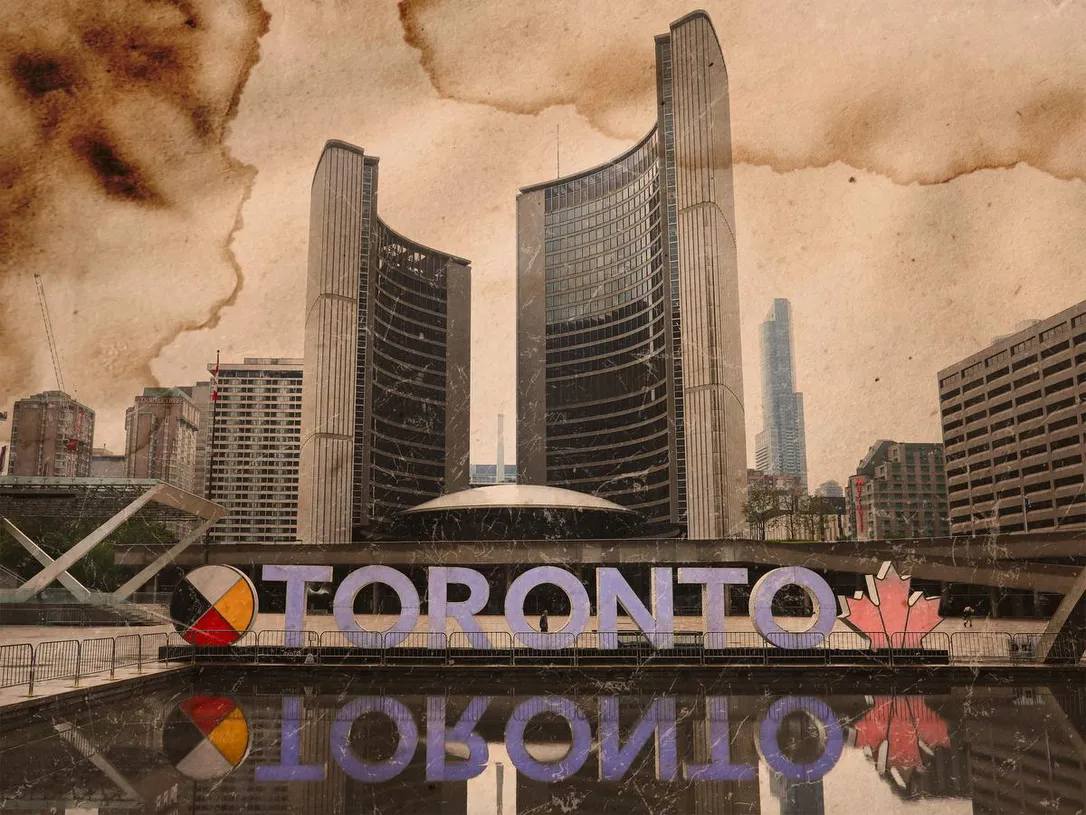It is the best of times, it is the worst of times.
Toronto is a tale of two cities right now: one privately rich and the other publicly impoverished.
One Toronto is a place to dream golden dreams where there are too many cranes in the sky to count, expensive cars roll through the streets, and there’s always money to be made. Lots and lots of money.
The other Toronto is visibly falling apart, services are shrinking, city-building projects on the books are either not funded or only partially funded, the streets are dangerous for pedestrians and cyclists, gun violence is a plague, and it’s becoming a more hostile place to live financially. This is a Toronto that is actively “planning to deteriorate” as the state of good repair budgets shrink. It’s not a metaphor, it’s in the current budget.
Stories in the “Can’t we do better” series
People who live in this Toronto, more of them each year, rely on those declining services. These are people who use the library. People who ride the bus. People without backyards and cottages who use the parks like their public living room, but find them in poor condition with washrooms and fountains they cannot count on and senior staff who cultivate a culture of “no” rather than “yes” in our public realm.
The answer to “can’t we do better” is “no” for this forlorn Toronto. The city is good enough. This is the Toronto that people, if they have the means, move away from. And many are, but many more can’t leave. It’s clear, if you’re listening and watching, the despair and disappointment in this city is growing.
Yet Toronto is also a “two solitudes” kind of city. The wealthy city is able to ignore the degrading city because they don’t experience it personally, though the Venn diagram of civic decline has some overlap: transit and traffic problems; roadkill in rigor mortis or rotting as days go by before pick up on our asphalt mortuaries; or the upper middle class that is starting to wonder if their kids will be able to afford a good life in Toronto, free of quiet desperation, without a big deposit from the bank of mom and dad.
That wealthy city is still quite comfortable and insulated from the declining city. As the scion of inherited wealth and social standing, Mayor John Tory lives and has thrived in the former, and despite his affable, avuncular veneer, he doesn’t seem to really understand that this other side is increasingly feeling the pinch, is suffering, or is ready to give up on the city altogether. That, or he’s deliberately ignoring it. During the first of only two debates, his avuncular side gave way to his peevish one when asked about Toronto in decline, appearing incredulous that such a thing even existed. There’s a meanness there too, as we saw with encampment evictions.
The mayor exists in a bubble but he’s not the only one responsible for Toronto’s decline. Many of this city’s residents are obsessed with low taxes, much lower than other nearby municipalities, yet they also want services. It’s an artificial tax freeze though, downloading service costs to individuals. That, and the degradation in quality of life here is also a real cost, even if it doesn’t have a dollar sign attached to it.
Other councillors have been extremely loyal to eight years of this kind of Toryism and without their support the mayor’s agenda would not pass. Last week Denzil Minnan-Wong, one of the deputy mayors hand-picked by Tory himself, complained to the Star about the decline in quality, maintenance and repair in the city due to neglect. “I think there’s a feeling that the city doesn’t care anymore and it’s not doing the core services that it used to provide but we’ve come to rely on,” he said.
This sudden concern can probably be considered “rich trolling” on his part, both of the mayor but also the whole city, as he was arguably the biggest low-tax voice on council, but this is a window into the disconnect many of Tory’s supporters, council or otherwise, have between their politics and the state of the city. One leads to the other.
As for his opponents on council, the progressive wing has been weak, unable to win votes or more council seats, and often will lose a vote and throw their hands up, as if there’s no other way to win hearts and minds. Progressives in this town can be as status quo as the mayor himself, and have also skilfully cultivated the culture of “no” themselves.
Legislatively, Toronto is a “child of the province” so blame also goes to provincial governments too, who have both underfunded the city and treated it like a political pawn. If you think “strong mayor” powers might change things, consider that this week when Tory said he was open to road tolls, the Ford government said no way within hours.
Can’t we do better? We certainly can.
If we don’t do better soon, it will be Toronto’s great undoing, and it will be a tale of one city.

